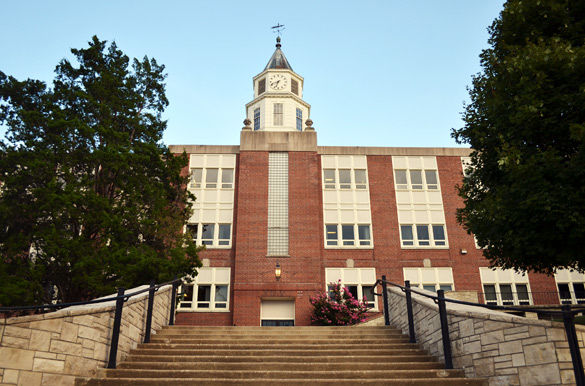SIU provost: Budget impasse ‘will bleed Illinois of its future’
February 24, 2016
SIU is still waiting on state reimbursement of money spent to fund Monetary Award Program grants in the 2016 fiscal year.
There is no guarantee the university will receive this money after a nearly nine-month long budget stalemate between Republican Gov. Bruce Rauner and Democratic legislators.
After fronting the money to pay for roughly 4,700 students’ MAP grants last fall and this spring, SIU is short an additional $11,495,763 — the sum of grants to assist those who would otherwise have difficulties paying college costs.
Advertisement
This negative balance is normal because the state usually does not pay the universities until the end of the semester, said Judy Marshall, executive director for university finance. However, she said the pending reimbursement has never been this large.
“These are unprecedented times with the situation with the state funding,” Marshall said. “We don’t have any history to refer to in terms of how this is all going to unfold.”
Marshall said the university does not have a reserve fund specifically for situations like this because the state has strict rules limiting how much cash public universities can accumulate.
Interim Provost Susan Ford said SIU was one of the state’s 12 public four-year institutions to provide MAP grant funding this semester without a state appropriation.
“We are an institution that has more reserves to live on than many of the institutions in the state,” Ford said. “But we’re spending out our savings bank.”
Marshall compared the university’s financial situation to a bank account in which operating funds are pooled together and the account is repeatedly being overdrawn.
“In the short term we can manage, but nobody could do something like that indefinitely,” Marshall said. “It is money the university doesn’t have in its operating costs.”
Advertisement*
Ford said it took the university years to collect enough funds to get through several months without state money.
“If we use them all up it may take another 20 to 25 years to again build up a rainy day fund that would let us weather this kind of a situation,” Ford said.
As for the university’s ability to continue fronting the costs of MAP grants and accumulating an even larger deficit as a result, Marshall said it all depends on what decisions are made in Springfield where Rauner already vetoed two bills proposing MAP grant funding.
In addition to no funding to date for the current fiscal year, Rauner proposed 20 percent cuts to higher education for fiscal year 2017.
Ford said any cost reduction will be painful, but the idea of a 20 percent cut is hard to comprehend.
“Those are astronomically large cuts to try to figure out how to absorb in a single fiscal year,” Ford said. “The idea of not getting any funding this year is very scary.”
She said she worries the lack of funding for higher education will not only threaten the quality education SIU has to offer, but also lower Illinois’ public college and university enrollment.
“The only way a democracy survives and thrives is if their people are educated, and the only way to make sure their people are educated is to provide quality public education,” Ford said. “Just the idea that our legislature and governor don’t understand the importance of an educated people for the state and the importance of public education is concerning. … The impact will bleed Illinois of its future, and that is very worrisome.”
Anna Spoerre can be reached at [email protected] or 618-536-3325.
Advertisement









